Domenico Citterio is the owner of a company specialized in importing and exporting potatoes for sowing and consumption, based in S. Martino Buon Albergo (in the province of Verona). He recently made a statement in relation to the drought that is affecting most of the European continent. He states that: "We are currently facing an epochal and unprecedented situation. The prolonged shortage of water supply is striking. It is not the drought itself which is shocking, rather the fact that it has extended itself over an enormous area. Almost all of Europe has been affected, from the English Channel to the Baltic States! ". This is what he declared following a long journey which he undertook in Scotland, Lithuania, France, Denmark, Germany and the Netherlands.
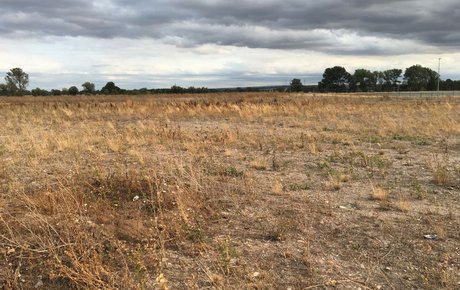
An image of the drought in eastern Germany. According to German meteorologists, not only have May and April of 2018 been the hottest in Germany since records began, but the country has also witnessed a whole series of high temperatures in the five-month period of April-August which have exceeded the peaks previously recorded in 2003.
Across the continent, the weather has been very dry. In the areas in which irrigation was possible, the situation appears to be relatively better; however, in most cases, croplands have not been irrigated, either due to the lack of structures, or due to explicit bans of the authorities that favored the civil uses of the (scarce) water resources available.
Industrial potato plants which have been clearly affected by the drought. The following images also refer to the situation (as of 10 August) in France, in the Arras area.
"Yields are dramatically below the historical five-year average. Whether the number has dropped down of 25% or 30% is not very relevant as it involves the whole European continent. The few countries that have been spared are Italy, Spain, Portugal and Greece, as they are mainly buyers", declares Domenico Citterio.
In addition to a double-digit deficiency in yields, two issues in terms of quality arise: 1) the tubers age earlier (therefore, they are less suitable for storage); 2) re-growth of crops will increase. "With a lack of precipitation, it will not even be possible to dig the tubers due to the compactness of the ground. Instead, if it rains too much, the crops will be destroyed", warns the expert.
The tubers' calibers are on average small or medium-sized, and they rarely reach 60mm+ in size. Therefore if there is an impact on the seed product (where the caliber is less relevant), it will have significant consequences on consumption.
"The Italian market does not offer such small calibers. So far only the early varieties have been harvested, which luckily have not severely been affected by the climate conditions. The problem now arises with the main crops, which generally develop in August, that are yet to be checked. As the product is not ready for consumption yet, it is difficult to be aware of the impacts of such conditions. However, I regret to say that when the month of November is reached, the situation might become tragic."
Meanwhile, the processing industry is buying up fry potatoes at five times the prices compared to 2017, when the product was abundant.
"Unfortunately, there is also very little hope for imported products covering the supply gap: production in Egypt is absent in this period; sowing will commence in two months and harvest in six months. Therefore, nothing can arrive in Europe until February/March 2019. I see an increasingly frequent and worrying oscillation between extreme situations, a swing that is posing a serious risk to the survival of tens of thousands of farms throughout Europe. Price tensions are already underway and, given the current conditions, I find it hard to say that the current alarmism is unjustified", concludes Domenico.
 Contact:
Contact:
Domenico Citterio & C. SrlVia delll'Industria, 1/b
37036 S. Martino B.A. (Verona, VR) - Italy
Tel.: (+39) 045 8780144
Fax: (+39) 045 8780311
Email:
[email protected]Website:
www.citteriopatate.it
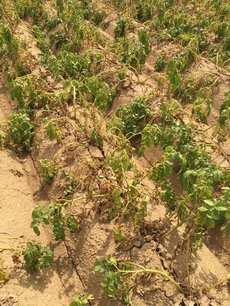
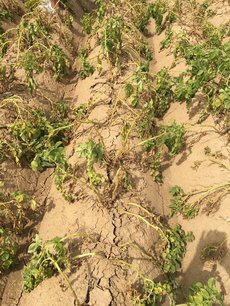
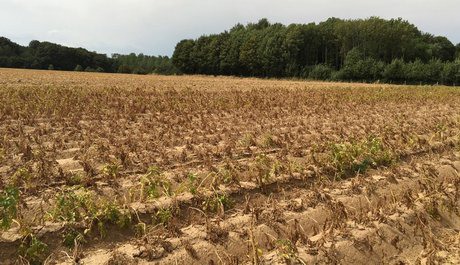
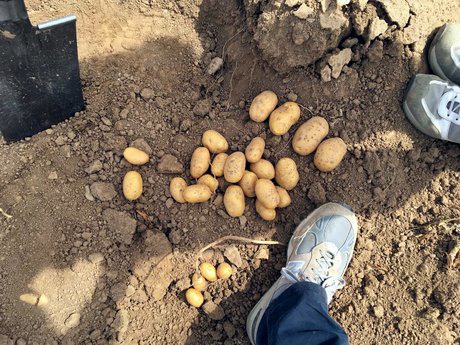
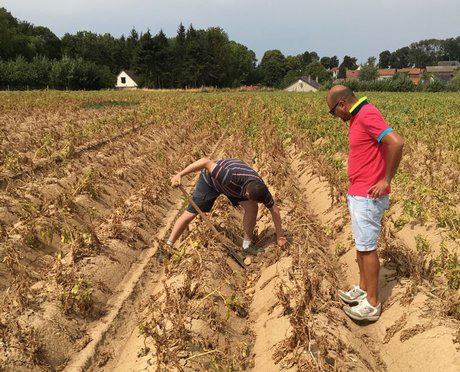
 Contact:
Contact:






 Contact:
Contact: